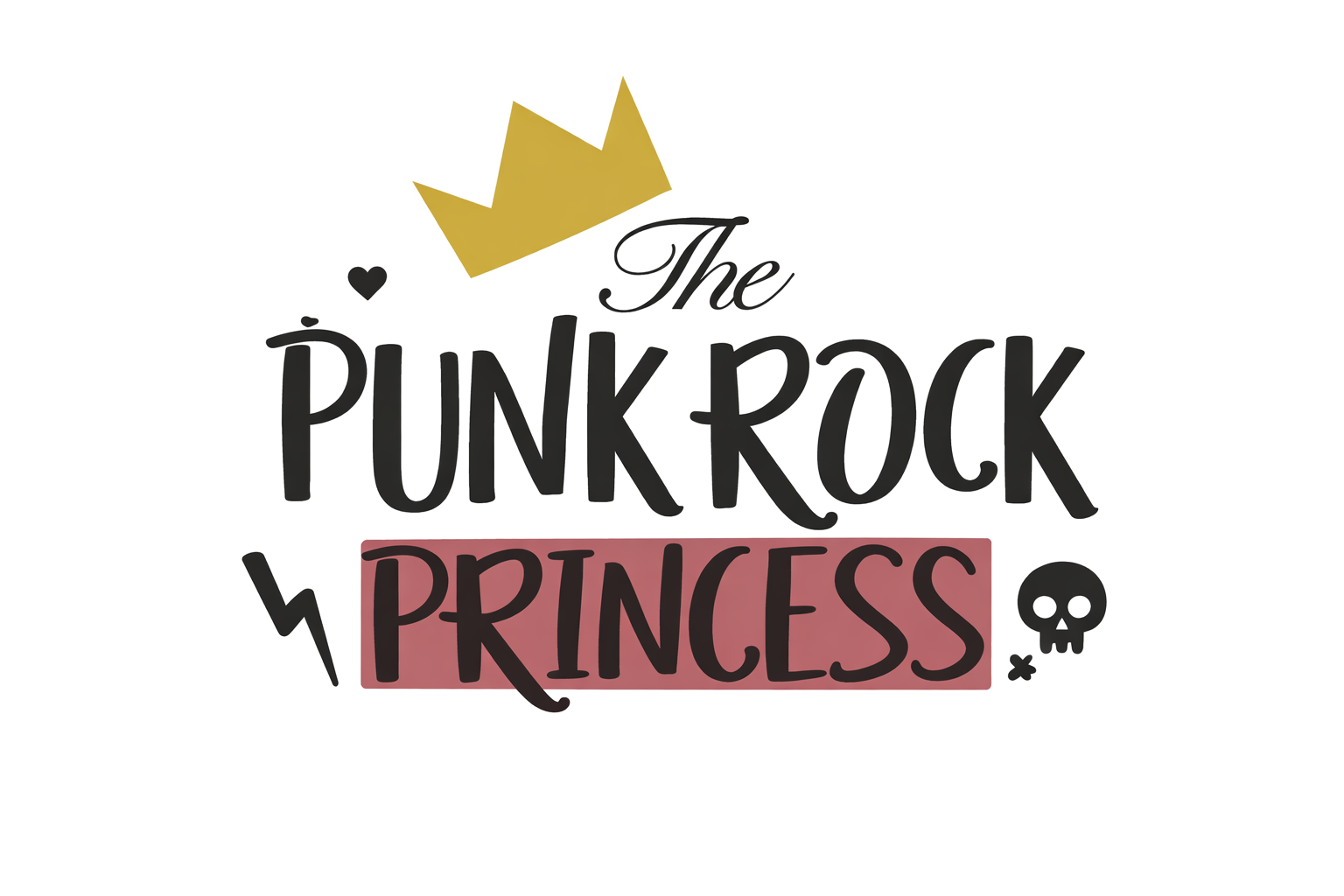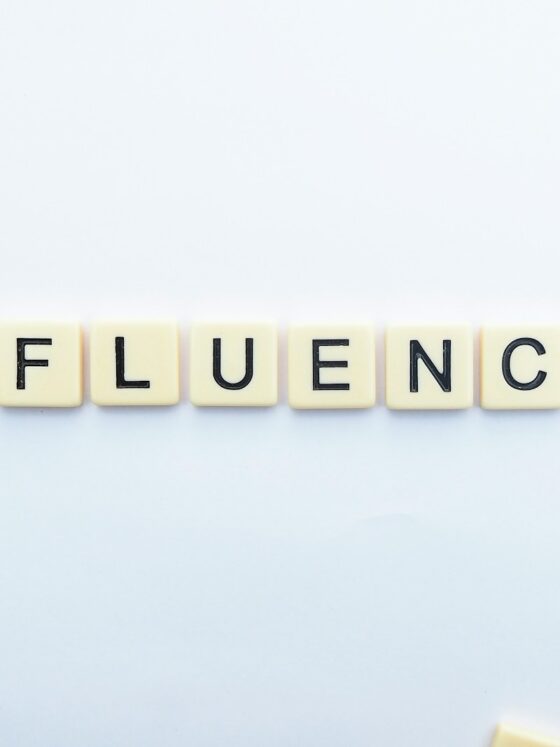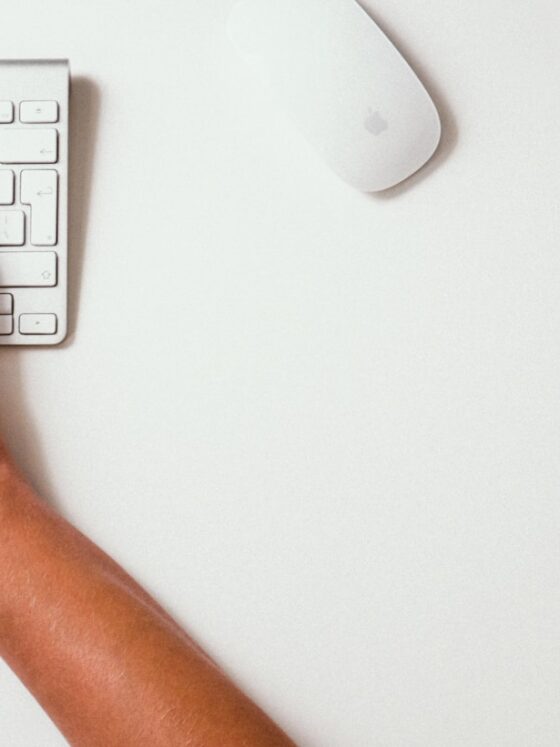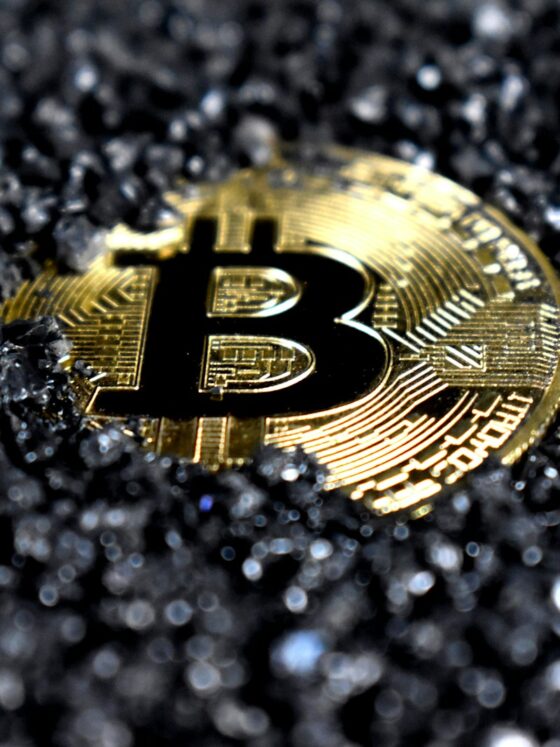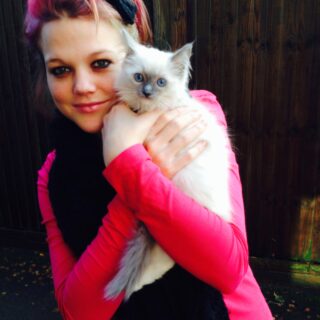So, you’re thinking of scuba diving? If you’re Googling ‘scuba diving for beginners’, you’re in the right place. This guide covers certification, essential gear, beginner-friendly dive sites, and tips to avoid rookie mistakes. Welcome to the club—the deep, adventurous, and slightly wetsuit-scented club! Whether it’s on your bucket list or you just binge-watched “Blue Planet,” scuba diving is one of the most exhilarating experiences you can give yourself. But before you suit up and do a backflip off a boat, let’s get down to the basics.
This guide isn’t just about tanks and tides. It’s a personal (and slightly salty) invitation to explore the underwater world with a few helpful hints, beginner tips, and personal touches that’ll have you breathing easy. Literally.
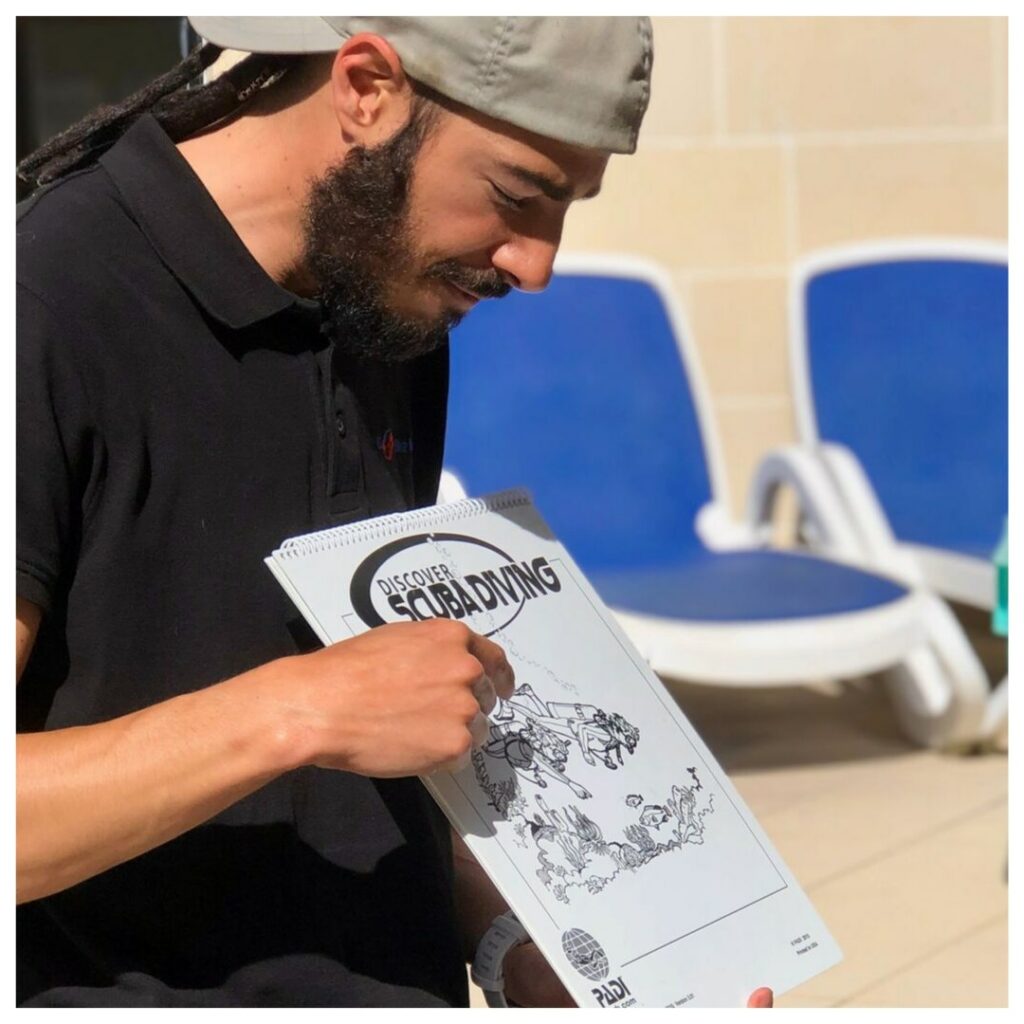
Why Scuba Diving Is More Than a Sport for Beginners
Scuba diving is part exploration, part meditation, and part, “I can’t believe I’m doing this!” The moment you submerge and the surface disappears above you, everything changes. The noise cuts out. Your focus narrows. You’re floating in silence among marine life and coral cathedrals. Indeed, the experience is as enchanting as it seems.
But like any wonderful adventure, it’s got a learning curve.
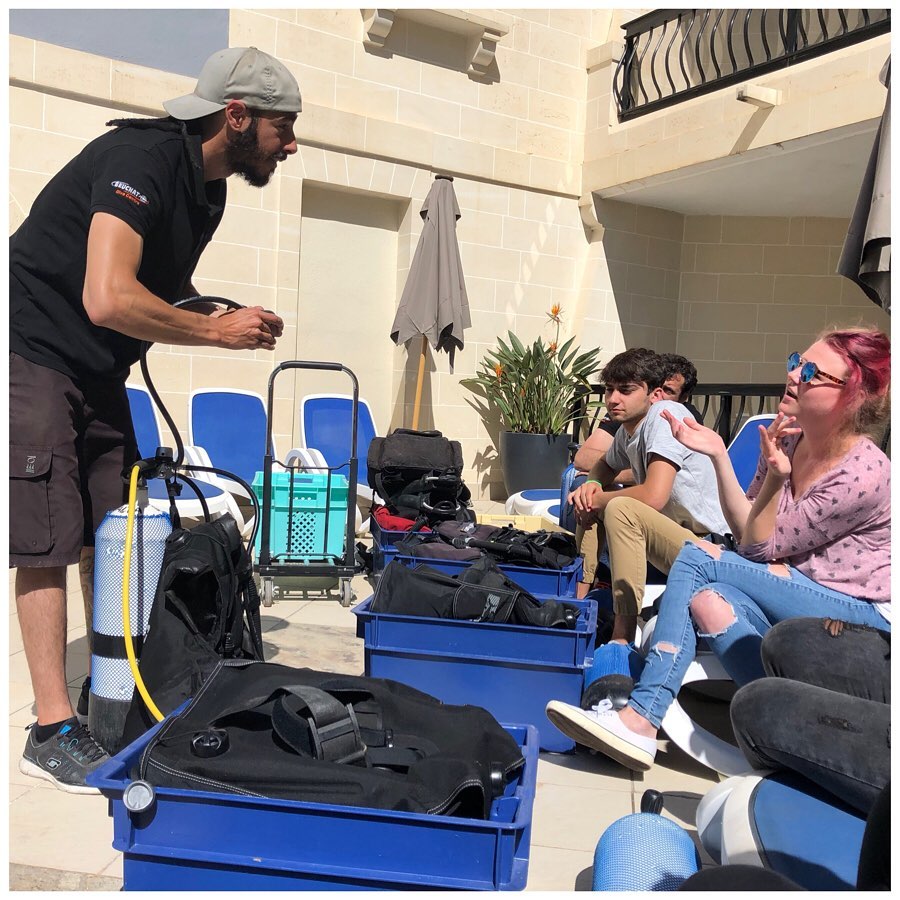
Scuba Diving Certification for Beginners
Before you dive, you’ll need to get certified. The most common organisations are:
- PADI – Professional Association of Diving Instructors
- NAUI – National Association of Underwater Instructors
safety. Most beginners start with the Open Water Diver certification, which teaches you how to use scuba gear, communicate underwater, handle common problems, and most importantly, emphasises safety stay calm and safe.
You’ll do a mix of classroom learning (or e-learning!), pool practice, and open water dives. It usually The process takes 3–4 days. As a bonus, it is often conducted in tropical locations—such as Malta, Bali, or the Red Sea—so your classroom might be in one of these beautiful places. just be a beach shack.
Is scuba diving safe for beginners?
Scuba diving is safe when done with proper training and a certified instructor. Beginner divers are always supervised, and courses are designed to ease you in step by step.
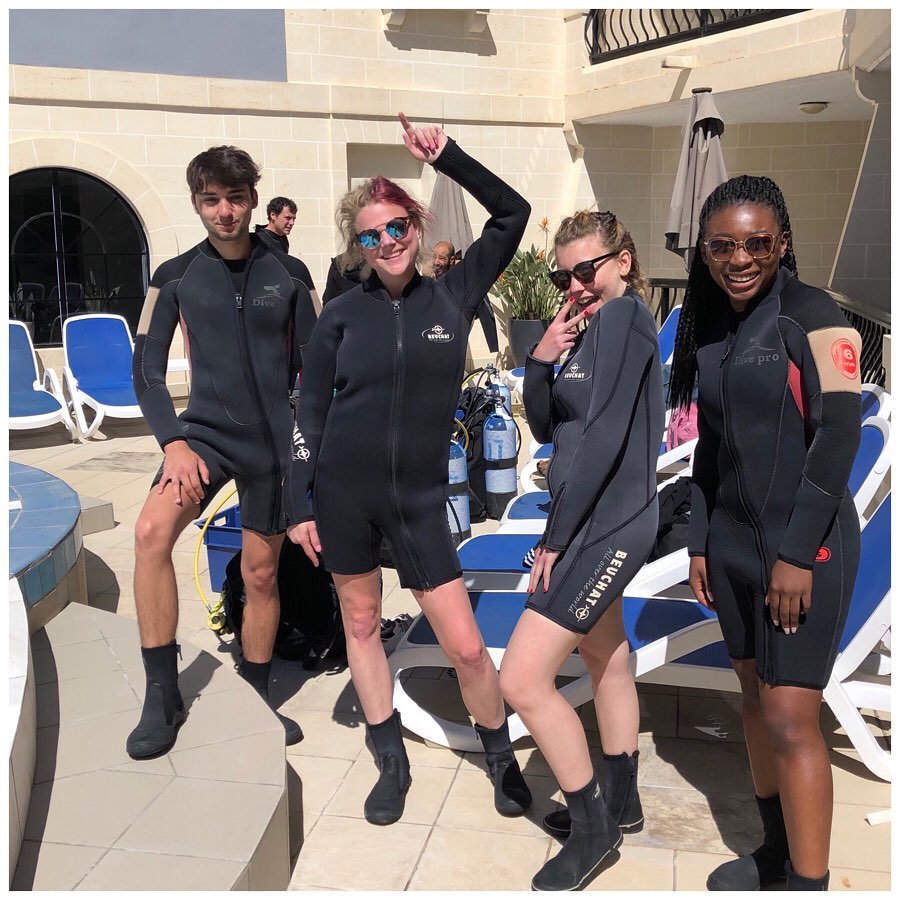
Essential Scuba Diving Gear for Beginners
Scuba gear looks intense regulators, fins, BCDs, pressure gauges but don’t worry. You don’t need to buy it all straight away. Most beginners rent gear from dive centres, which not only saves money but also ensures professional maintenance.
Here’s what you’ll typically need:
- Mask and snorkel (often personal for comfort)
- Fins
- Wetsuit or drysuit (depending on location)
- Regulator
- BCD (Buoyancy Control Device)
- Tank
- Weights
Buying everything? That’ll cost you over €1,100. Renting? Typically, the cost ranges from €20 to €50 per day, contingent on the specific location.
Want to know a secret? Many certified divers own only their mask, snorkel, and fins for reasons of hygiene and fit; then they rent other equipment. the rest on location.
How much does scuba diving cost for beginners?
A beginner’s certification typically costs between €300 and €500, depending on location. Renting gear ranges from €20 to €50 per day, making diving more affordable than most people think.
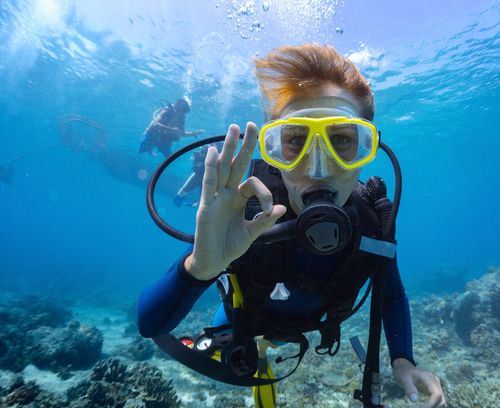
Best Scuba Diving Destinations for Beginners
Whether you’re craving coral reefs or epic shipwrecks, here are a few incredible places for first-timers:
Malta (yes, your girl’s home turf!)
Malta is a diver’s paradise, with crystal-clear waters, beginner-friendly dive centres, and some of the best wreck dives in Europe. Bonus? You can follow up your dive with pastizzi and a cheeky Cisk.
The Red Sea, Egypt
The Red Sea in Egypt boasts warm waters, vibrant reefs, and awe-inspiring schools of fish. It’s affordable and packed with world-class dive schools.
Costa Rica
If you’re after turtles, manta rays, and the occasional reef shark (don’t worry—they’re shy), Costa Rica delivers.
The Great Barrier Reef, Australia
The Great Barrier Reef, Australia, is the ultimate diving destination. Just note that certain parts can be overwhelming for beginners, so go with a reputable school.
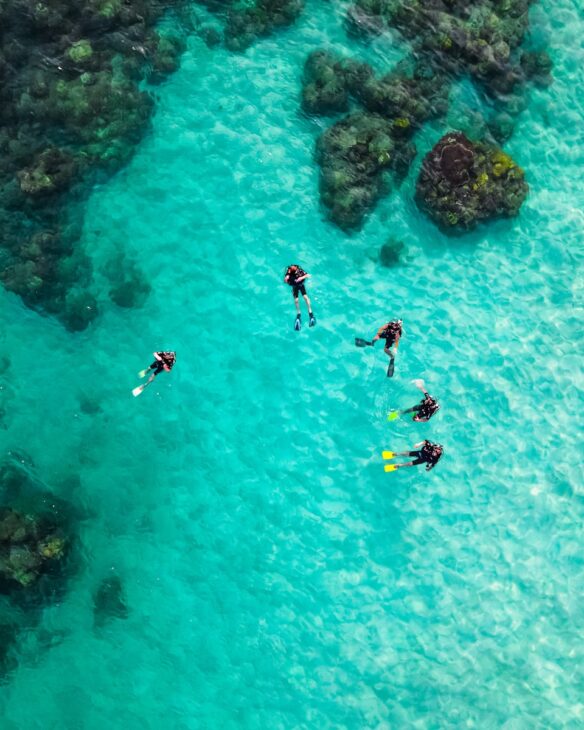
Fun fact: scuba stands for…
“Self-Contained Underwater Breathing Apparatus.” Fancy, huh?
Common Mistakes Beginners Make When Scuba Diving
Let’s keep you looking cool underwater by avoiding rookie blunders:
- Skip equalisation: Your ears need you to pinch your nose and blow gently as you descend. Don’t ignore it.
- Over-breathing: You’re not running a marathon. Breathe slowly and calmly. It conserves air and calms the nerves.
- Touching marine life: Don’t do it. Coral is fragile, and many fish don’t want a cuddle.
Beginner scuba diving tips
- Practise breathing through your regulator on land.
- Don’t overload your weight belt.
- Learn basic hand signals before your dive.
And remember: never dive alone. Always have a buddy. Not only is it important for safety, but it also allows you to give yourself a high-five when you spot a sea turtle.
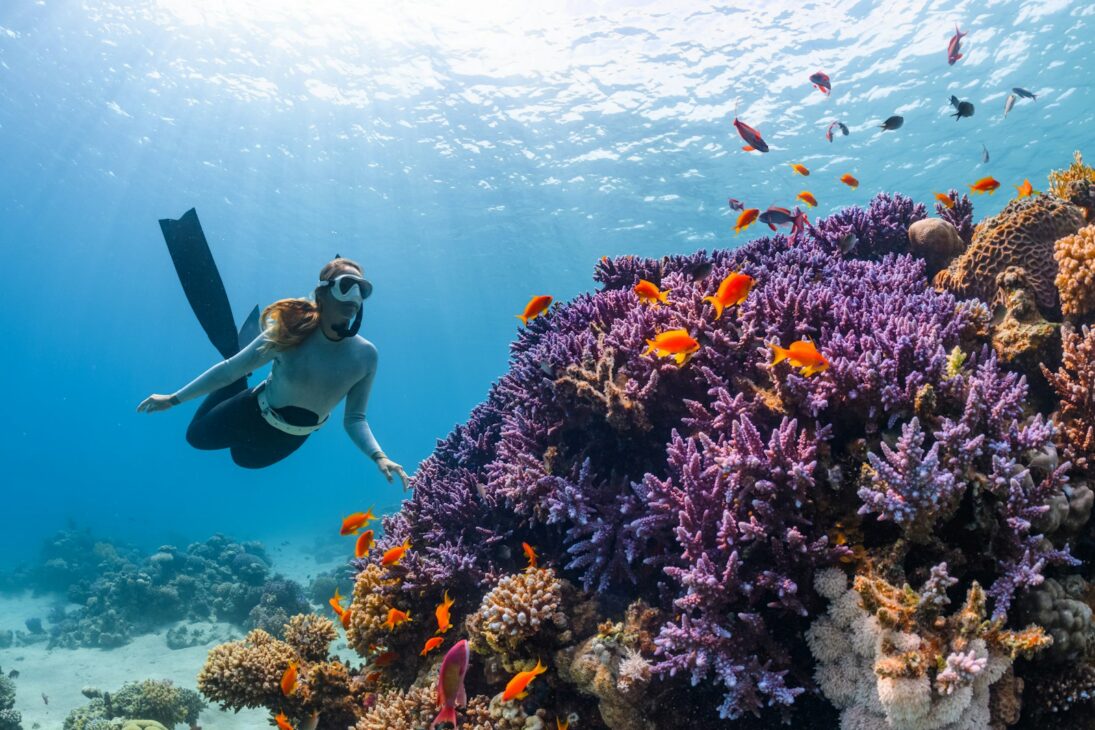
Want to go full influencer?
Many dive schools offer underwater photo or video packages. Think GoPro shots of you swimming through a cave like Lara Croft meets Aquaman. Just don’t get too focused on posing—remember to enjoy the moment.
My personal first-time dive tip
During my first dive in Gozo, I panicked. Like, a full-on “get me out of here” moment. My instructor, calm as ever, held my hand (literally) and slowed his breath until I mirrored him. It worked. Five minutes later, we were hovering over a shipwreck like ghosts in the deep. I’ll never forget it.
Moral of the story? It’s OK to be nervous. Just breathe. You’ve got this.
Are you prepared to take the plunge?
Scuba diving isn’t just a sport—it’s a mindset. It’s about curiosity, respect for the ocean, and pushing your comfort zone (in a safe, certified way!). Whether it becomes your new obsession or a once-in-a-lifetime memory, your first dive will change how you see the world. Literally.
So go ahead. Book that course. Pack that mask. And say hello to a world few people ever get to experience.
